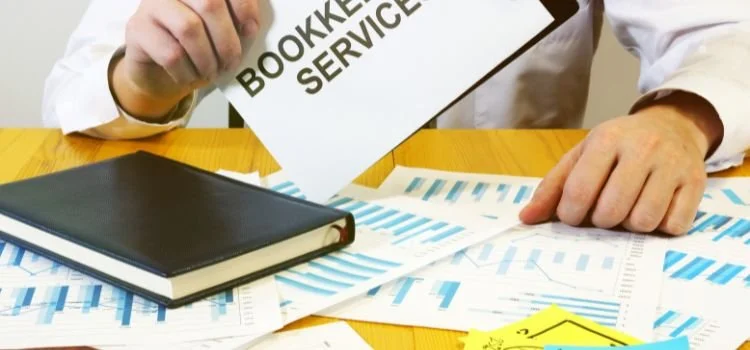Accounting Toolkit for a resale business in the UK
There’s no glamour in accounting, but it’s the part of your resale business that keeps the rest from falling apart.
You already know how fast things move when HMRC is asking for clean records you haven’t had time to organise.
That’s why every resale business needs a solid toolkit. Not just “some software” or “a spreadsheet,” but the kind of setup that fits your pace, keeps your VAT straight, and gives you actual control over your numbers.
In this post, we’re not listing fancy features or tech jargon. Just the tools and systems that make everyday accounting simpler for second-hand dealers in the UK, especially if you're under the VAT Margin Scheme.
Accounting Toolkit for UK Resellers
A Record-Keeping System That Tracks Every Purchase And Sale
There's one thing HMRC never jokes about it’s poor record keeping. Your records need to show what came in, what went out, and how much you paid and earned from each item.
This isn’t just about neat admin. For resale businesses using the VAT Margin Scheme, good record keeping is a legal requirement. You must keep:
The purchase invoice (or seller details if bought privately)
The sales invoice
A clear margin calculation: sale price – purchase price = margin
A reference that links the sale back to the purchase
Without this trail, HMRC can disallow your VAT treatment or apply penalties. And if you're ever audited, you'll need to show all this clearly.
What to use:
You don’t need fancy software to start. Even a Google Sheet or accounting app like QuickBooks or Xero works if set up right. The key is consistency and making sure every entry can be backed up with a receipt, invoice, or bank transaction.
You can find HMRC’s full record-keeping rules for the VAT Margin Scheme here: VAT Margin Schemes
Inventory Tools That Track What’s In Stock And What It Really Costs
You might know off the top of your head what’s on the shelf, but that’s not the same as knowing your inventory’s actual value or how much profit you’re making on each item.
Resellers often forget that stock isn’t just about quantity but about cost. If you don’t log what you paid for each item (including extras like cleaning, repairs, or packaging), your profit margins will always be guesswork.
You can start simple with tools like Excel or Google Sheets, or step up to apps like QuickBooks Commerce or inFlow Inventory. The best option is whatever helps you:
Enter purchase and sale data quickly
Attach invoices or photos
View what’s in stock at any time
Track what each item really costs you
Want to understand how to account for inventory costs properly? Read our post on Cost of Goods Sold (COGS) for second-hand businesses
VAT Tools That Support The Margin Scheme Properly
If you’re calculating margin VAT manually, it’s easy to make errors. That’s why having tools that actually support the scheme can save time and protect you from costly HMRC penalties.
What your VAT system needs to handle:
Calculating VAT based on the margin, not the full sale price
Separating eligible margin goods from standard-rated sales
Generating correct invoices that show “Margin Scheme – second-hand goods” wording
Keeping VAT records for both purchases and sales in an auditable way
What to use:
Many resale businesses rely on QuickBooks, Xero, or FreeAgent, but not all of them support the Margin Scheme directly out of the box. You may need to:
Adjust your VAT codes manually
Use spreadsheet add-ons
Work with an accountant who understands how to make the software Margin-Scheme friendly
You can also read our post on Penalties for Non-Compliance with the VAT Margin Scheme.
A Bookkeeping Routine: Diy Or Done For You
But bookkeeping isn’t something you catch up on all at once. It works best as a habit.
Whether you handle it yourself or work with someone, the important thing is that it’s happening regularly. That means:
Recording sales and purchases consistently
Reconciling your bank statements
Checking that your VAT is being recorded correctly
Reviewing your stock, COGS, and cash flow at least monthly
If you're DIY-ing it:
Set a fixed day each week or month to update your books. Use reminders. Keep a shared folder for receipts and invoices. Make it easy on yourself.
If you’d rather not:
An accountant can help with everything from monthly bookkeeping to VAT filing and reporting especially if they understand second-hand businesses and the Margin Scheme.
If you help stay on top of it all, you can also read our guide on How to Prepare for Tax Season as a Reseller.
Reminder: Bookkeeping is like brushing your teeth. Skip it once or twice and you’ll be fine. Ignore it long enough, and you’ll end up paying for the fix.
Conclusion
You don’t need to be an accountant to stay on top of your resale business; you just need the right systems in place.
With a simple record-keeping setup, an inventory tracker that makes sense, proper VAT support, and a regular bookkeeping routine, you can go from reactive to confident. No last-minute number hunts. No crossed fingers at tax time. A straightforward resale business that operates efficiently.
And if you’re not sure where to start or what tools make sense for you, we can help.
At Rhombus Accounting Firm, we work with second-hand dealers across the UK, helping them get organised, stay compliant, and understand what their numbers are saying.
Thanks for reading!
Meet Lewis
Lewis is a professional accountant and the founder of Rhombus Accounting. He regularly shares his knowledge and best advice on his blog and other channels, such as LinkedIn.
Book a call today to learn more about what Lewis and Rhombus Accounting can do for you.



